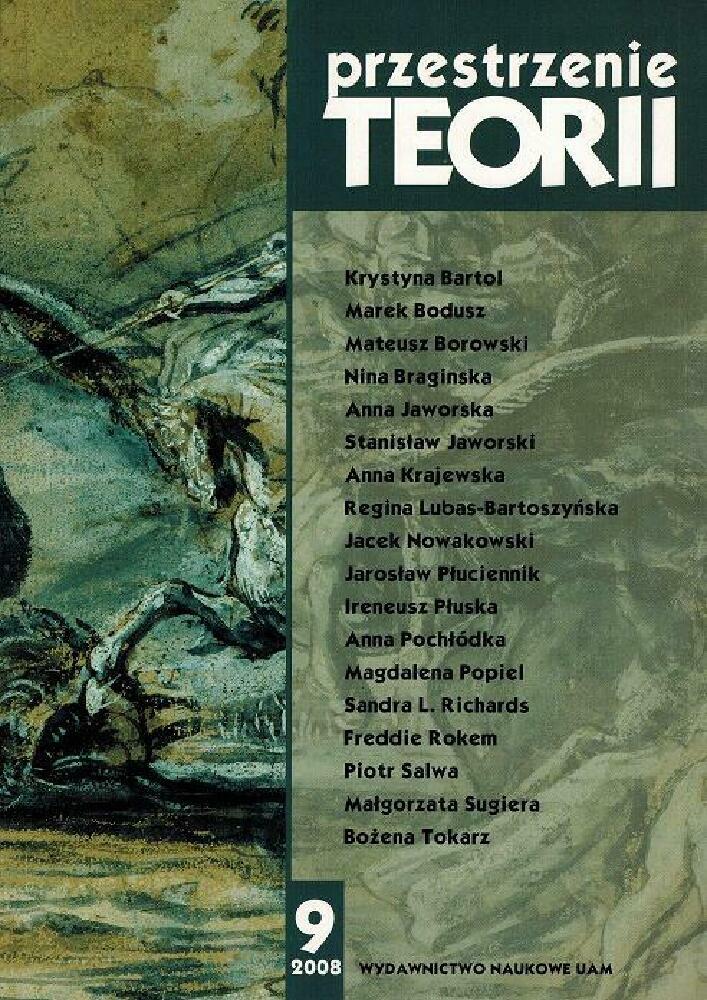Abstrakt
A point of departure in my article is Francesco Loriggio's brilliant analysis Mind as Dialogue: The Bakhtin Circle and Pragmatist Psychology. My essay stands as a polemics with one of the main theses of Loriggio that dialogics should be divided into just two kinds: novelistic and theatrical one. I propose a more historical approach to the development of dialogics. In different cultural areas various practices and theories may form themselves in divergent ways. Since 1 7,h century, the development of the dialogics traveled from an apocalyptic - and demonizing its opponents - discourse (John Milton's approach in Areopagitica), through dialogics of cooperation of obligations and laws (Polish Socinians, especially Jan Crell), dialogics of deduction (transcendental cooperation in I. Kant), through the dynamic dialogics of induction and creativity (John. S. Mill) to the dynamic fuzzy and multi-valued dialogics of a concept of rationality in R. Rorty or the theory of (un)free speech in S. Fish. Dialogics is not represented merely by two discoursive practices. I postulate existence of at least one medium discourse: deliberative rhetoric.
Licencja
Autorzy
Autorzy tekstów przyjętych do publikacji w czasopiśmie „Przestrzeniach Teorii” są zobowiązani do wypełnienia, podpisania i odesłania na adres redakcji umowy o udzielenie nieodpłatnej licencji do utworów, z zobowiązaniem do udzielania sublicencji CC.
Zgodnie z umową, autorzy tekstów opublikowanych w czasopiśmie „Przestrzeniach Teorii” udzielają Uniwersytetowi im. Adama Mickiewicza w Poznaniu niewyłącznej i nieodpłatnej licencji oraz zezwalą na użycie sublicencji Creative Commons Attribution-NonCommercial-NoDerivatives 4.0 International (CC BY-NC-ND 4.0).
Autorzy zachowują prawa do dalszego, swobodnego rozporządzania utworem.
Autorzy, którzy wykorzystują w swoim tekście cudze utwory (np. ilustracje, fotografie) proszeni są o dostarczenie do redakcji czasopisma zgodę na publikację od uprawnionych podmiotów.
Użytkownicy
Zainteresowani użytkownicy internetu uprawnieni są do korzystania z utworów opublikowanych po 2015 roku „Przestrzeniach Teorii” tylko w calach niekomercyjnych, pod następującymi warunkami:
- uznanie autorstwa - obowiązek podania wraz z rozpowszechnionym utworem, informacji, o autorstwie, tytule, źródle (odnośniki do oryginalnego utworu, DOI) oraz samej licencji;
- bez tworzenia utworów zależnych - utwór musi być zachowany w oryginalnej postaci, nie można bez zgody twórcy rozpowszechniać np. tłumaczeń, opracowań.
Do wszystkich tekstów opublikowanych przed 2015 r. prawa autorskie są zastrzeżone.
Inne
Uniwersytet im. Adama Mickiewicza w Poznaniu zachowuje prawo do czasopisma jako całości (układ, forma graficzna, tytuł, projekt okładki, logo itp.).
